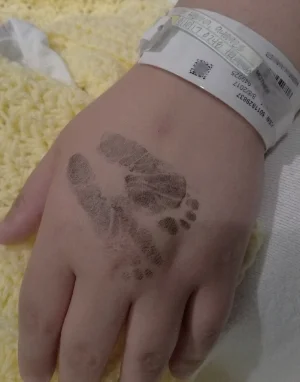Don't Ask Her How She's Doing
I was at a loss the other day.
In the sense of using euphemisms I was at a death the other day. But I was figuratively lost when searching for words that could in any way help the circumstance.
And the mother knew it. But neither of us had the language to describe it. And then Karol* walked in. The social worker who was making her first or second call of the day, clip-board and book in hand with a bag of hospital issued comfort items under her arm. She came in neutral, and sat in a chair next to the bed, close enough to reach out and touch the grief stricken woman before her on the knee.
"Good morning ****, my name's Karol. How are you doing?"
The question loomed between them as the mom slowly lifted her gaze from her trance of mourning. In a moment there was confusion, anger and exasperation as the first words seemed to bubble up in her throat.
"Excuse me, Karol? How the heck do you expect me to answer that question? ..."
What followed didn't burst forth from a dam all at once, the words rather began to trickle out of her in a stream of consciousness from a fountain under her heart. Where her womb was now shriveling, empty, blood and sadness pouring out of her.
I watched as Karol received the message. Assessed where this mother was and how she was processing the devastation. She made sure to listen intently and with almost her full attention... perhaps as a good example for her intern who stood silently behind her, holding a fluffy blue teddy-bear. I could see Karol not so much waiting to speak, but formulating the information she was receiving. Her next words would be to identify and echo, to acknowledge and frame. She was listening for key-phrases and pulling from her expertise and experience key-phrases of her own. She was diligently sincere. She was genuinely helpful. She held the mother's grief. She would not carry it though. I suppose as a hospital social worker it must be a cardinal rule to not carry the grief. I suppose I would coach my intern to find a ritual to lay the grief down at the end of the visit otherwise you'll be overloaded at the end of your work day.
I carried it the whole day. Then parceled it out through conversations with my own support people. Then slept through a silent night in my bed.
The bereaved mother had a silent night as well.
When I visited her this week I knew what not to ask. We can all assume you're not doing well when your worst nightmare becomes a reality. Instead I asked her whether she'd been able to eat anything lately. The question wasn't so important as the consideration. That someone approaching her would at least not dole out a platitude of nicety to engage.
"Thanks for not asking how I'm doing." she said.
"I couldn't know how it is for you even if you told me," I responded. "Rather, HOW are you able to DO anything these last hours?"
For this mother one moment at a time was key, just doing this moment was all the effort and planning required. If she had to swim across an ocean of grief to find an empty shore, she'd have to do it one wave at a time. "Just this one, because if I look at the ocean I'll surely drown." So she's doing one wave at a time. Doing just this moment. THAT'S how she's doing.
As a servant in birth I'm often called to usher the mother to the moment of birth. Her birth of identity, the birth of her child, the birth of her realization of how strong and resilient she actually is. In this way, my work with this mother was no different. As she bore her silent son, she also bore a grief so heavy she could never parcel it all way. I carry some.
Thank you for carrying a little bit also.
In memory of beloved Mario

